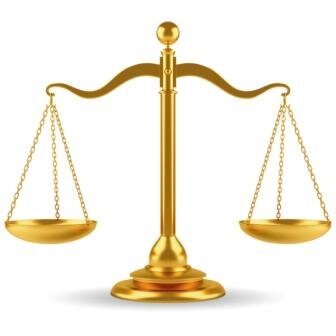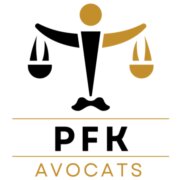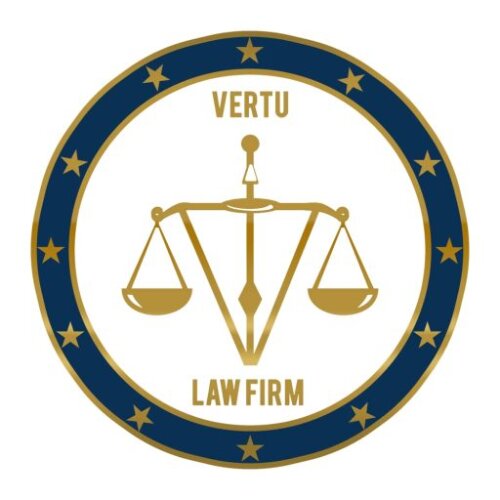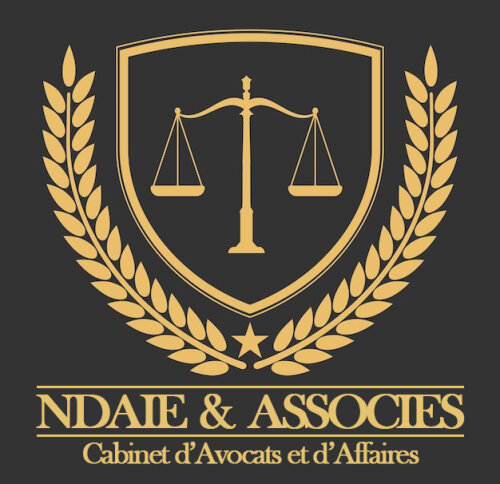Best Business Lawyers in Lubumbashi
Share your needs with us, get contacted by law firms.
Free. Takes 2 min.
List of the best lawyers in Lubumbashi, DR Congo
About Business Law in Lubumbashi, DR Congo
The Democratic Republic of the Congo, with Lubumbashi as its second largest city, has a diverse economic climate that is continually evolving. As the national center for mining and related industries, Lubumbashi has a bustling business atmosphere. Thus, the business law in this region is designed to offer a protective legal framework not only for large corporations but also for small and medium enterprises.
Business law here encompasses various aspects such as corporate governance, contracts, taxes, labor relations, and property rights. In an effort to encourage entrepreneurship, the government has been trying to improve ease of doing business, although the business legal structure is still developing and can be complex. Therefore, having legal advice is essential.
Why You May Need a Lawyer
Engaging in business in Lubumbashi presents unique scenarios where you might require a lawyer. This may include when forming a business to ensure compliance with local regulations, in the process of drafting contracts with other businesses or employees, and resolving business disputes or matters related to bankruptcy and liquidation.
A lawyer can also provide necessary guidance in matters of intellectual property protection, tax obligations, and labor laws. Additionally, if you aim to expand your business, buying property, merger or acquisition, a lawyer would be indispensable in navigating the complexities of these processes.
Local Laws Overview
Business law in Lubumbashi is governed by OHADA (Organization for the Harmonization of Business Law in Africa), which applies to DR Congo. This includes legislation regarding commercial business structures, insolvency and receivership, and arbitration for business disputes.
Local laws stipulate that businesses must be properly registered and they must comply with taxation obligations. Labour laws are also an essential part of local regulations protecting the rights of employees regarding working hours, safety, and minimum wage.
Frequently Asked Questions
1. How can one start a business in Lubumbashi?
Starting a business in Lubumbashi requires you to register your business with the Companies Registry and obtain a license relevant to your field of operation.
2. What are the corporate tax obligations in Lubumbashi?
Corporate tax in Lubumbashi stands at 30%. Additionally, there are other taxes such as the Value Added Tax (VAT) at 16%.
3. What is the primary legislation governing commercial activities in Lubumbashi?
Lubumbashi follows the laws set by OHADA, which provides comprehensive legislation on commercial business activities.
4. What are the labour laws concerning employee termination?
Labor law mandates that any termination must be justified and follow procedures outlined in the Labour Code, including a notice period or pay in lieu.
5. Can a foreigner start a business in Lubumbashi?
Yes, foreigners can start a business in Lubumbashi, but there are some restrictions and additional requirements in certain industries.
6. Is arbitration allowed in case of business disputes?
Yes. According to OHADA law, arbitration is allowed and often encouraged for business dispute settlement.
7. What is the minimum capital required to start a business?
The minimum capital required to start a business differs depending on the type of entity. It would be best to consult a lawyer for precise information.
8. Are there intellectual property protection laws?
Yes, there are laws under OHADA legislation to protect intellectual property rights.
9. Do businesses in Lubumbashi need to comply with environmental laws?
Businesses are required to comply with environmental laws and regulations, particularly those related to mining and other heavy industries.
10. Are there incentives for starting a business in certain sectors?
Yes, the government of DR Congo provides incentives for businesses in sectors like mining, agriculture, and power production.
Additional Resources
The Ministry of Justice and the Chamber of Commerce in DR Congo are useful resources for learning about various regulations and laws related to business. The OHADA official website also provides comprehensive information about business legislation.
Next Steps
If you need legal assistance, it would be prudent to hire a knowledgeable lawyer who is well-versed in the local business laws in Lubumbashi. Take time to consult with different law firms to gauge their expertise and experience before deciding on one. Do not hesitate to ask them any pressing questions regarding your business to get a clear understanding of the way forward.
Lawzana helps you find the best lawyers and law firms in Lubumbashi through a curated and pre-screened list of qualified legal professionals. Our platform offers rankings and detailed profiles of attorneys and law firms, allowing you to compare based on practice areas, including Business, experience, and client feedback.
Each profile includes a description of the firm's areas of practice, client reviews, team members and partners, year of establishment, spoken languages, office locations, contact information, social media presence, and any published articles or resources. Most firms on our platform speak English and are experienced in both local and international legal matters.
Get a quote from top-rated law firms in Lubumbashi, DR Congo — quickly, securely, and without unnecessary hassle.
Disclaimer:
The information provided on this page is for general informational purposes only and does not constitute legal advice. While we strive to ensure the accuracy and relevance of the content, legal information may change over time, and interpretations of the law can vary. You should always consult with a qualified legal professional for advice specific to your situation.
We disclaim all liability for actions taken or not taken based on the content of this page. If you believe any information is incorrect or outdated, please contact us, and we will review and update it where appropriate.
Browse business law firms by service in Lubumbashi, DR Congo
Lubumbashi, DR Congo Attorneys in related practice areas.















